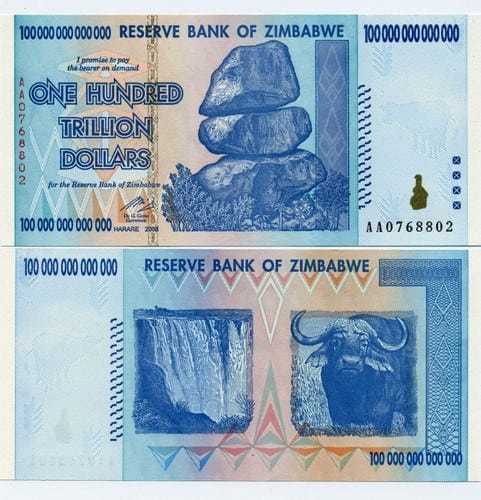China Dupes U.S. in Major African Currency Deal
China has wanted to expand its own currency into the world markets, recently being added to the SDR currency basket by the IMF.
But China has also long had its eyes on the continent of Africa, spending billions of dollars in development aid -- and building economic and strategic allies along the way.
But this week marks a new advance in China's monetary plans -- the use of the renminbi as a legal tender by a country outside its borders.

The U.S. has long been a de facto and legal tender of many nations -- up until this week 10 nations used our currency rather than having their own.
Zimbabwe, for instance, used the U.S. dollar after their own currency went into hyper-inflation (trading halted at 1 quadrillion Zimbabwe dollars to 1 USD).
Since the Bretton Woods Agreement in 1944, American currency has been the de facto world reserve, even long after the world left the Bretton System and returned to a free-floating currency market.
It's a symbol of power and economic stability to have your currency used as a reserve or even as a legal tender in other nations.
This is where China is gaining ground. For the mere price of wiping out Zimbabwe's debt, the Chinese have gained a significant economic ally in Africa.
The U.S. dollar had been the de facto means of exchange in Zimbabwe, but the move to the renminbi is a natural pairing for the Chinese, as they make up almost 28 percent of Zimbabwe's export business.
The problem for the U.S. is that little by little, country by country, we keep losing allies to the Chinese -- both economic and strategic. Once a country's finances are enmeshed with another's, they are natural trading partners for decades (if not centuries).
Our foreign policy flaws aren't from how we deal with Russia or ISIS, but from the fact that the smaller nations worldwide are looking to others, not us, for economic and military support.
Our politicians and voters need to get a grasp on what is truly happening outside our borders: our economic and military might are being slowly chipped away by the Chinese, the Russians, and even the European Union.
These other nations are quick to give a helping hand to these developing nations--and in return, have their gratitude when it comes to foreign policy.
Our foreign policy can no longer afford to be based on how many aircraft carriers we can float at a time or how many bombs we can drop during a particular campaign.
To be a real leader in the world, we need to actually lead--and sometimes that means lending a helping hand instead of playing the role of worldwide policeman or bully.



